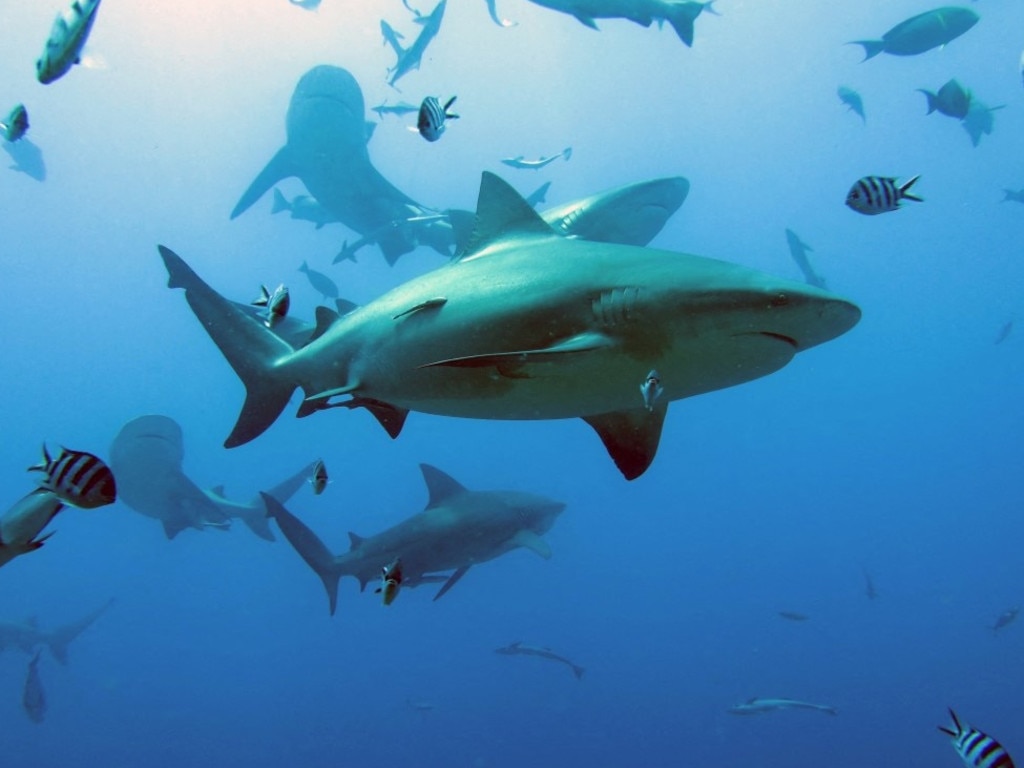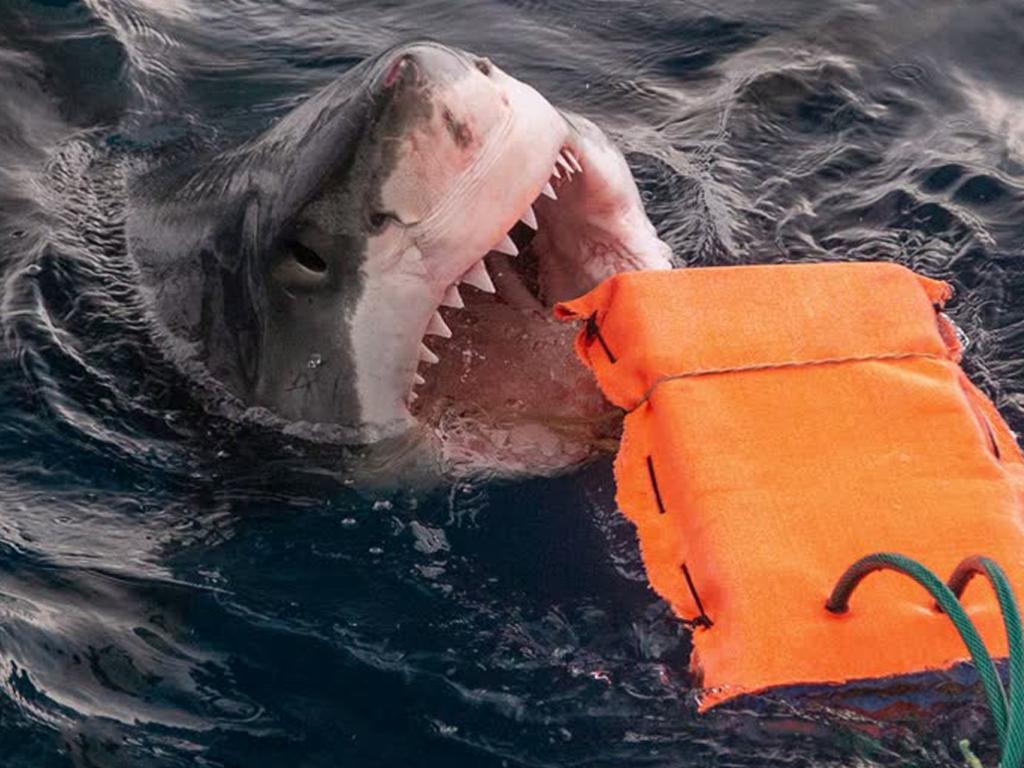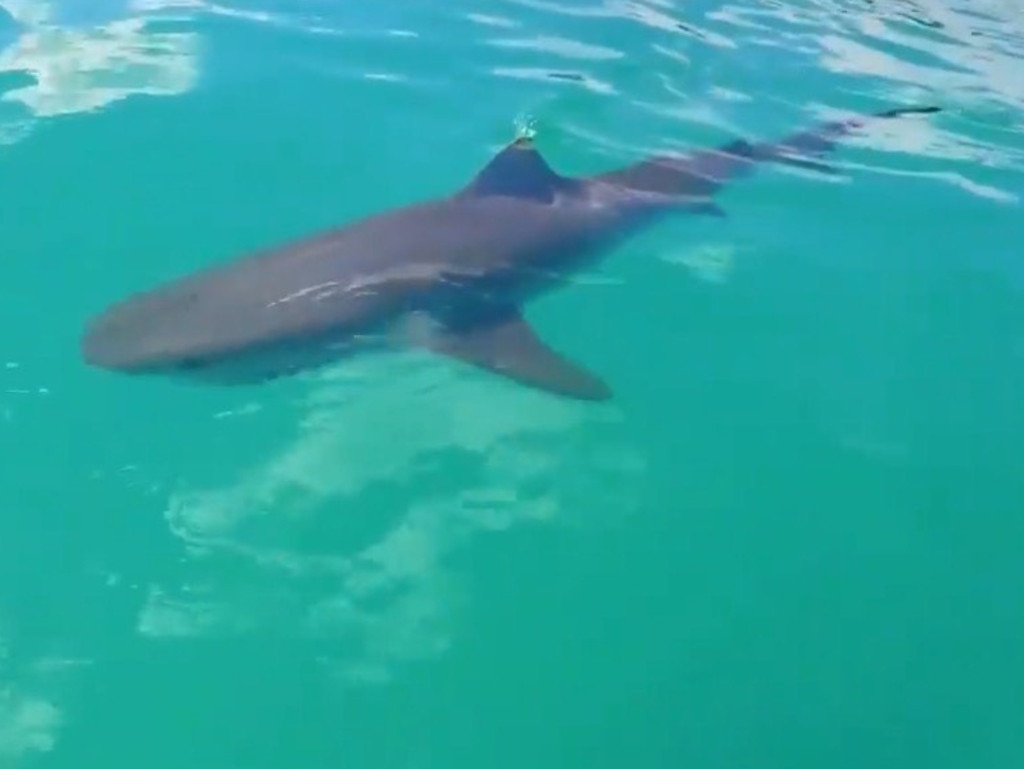Common shark myths debunked as fatal attack in North Fremantle raises safety questions
It’s a long-held belief that it is safer to swim where there are dolphins. But is it true? A shark expert addresses this and other beliefs after Australia’s first shark attack of 2023.
Australia’s first shark attack of 2023 has shaken the nation and raised questions about managing the risks for humans in water.
Perth student Stella Berry, 16, bled to death after she was attacked by an apparent bull shark in the Swan River in North Fremantle on Saturday afternoon.
Police said the girl had been riding jet skis with friends when she jumped into the water to swim with a pod of dolphins.
The incident, the first fatal shark bite in the Swan River in 100 years, has prompted the local fisheries department to urgently look at potential mitigation measures including public education.
Bull sharks, tiger sharks and white sharks are the main concern for shark incidents or attacks across Australia’s vast coastline.
But these incidents are rare and can be avoided by playing it safe in the water. The key is to separate facts from fiction.
Dr Christine Dudgeon, a research fellow from the University of Queensland working on the evolution of sharks and rays, explained.
SHARKS DON’T SWIM IN RIVERS. FALSE
Bull sharks thrive in saltwater, river systems and lakes.
“Bull sharks do really well in more turbid or murky water where you can’t really see anything,” Dr Dudgeon said.
“They don’t have great eyesight but they have other senses that they rely on.”
IF THERE ARE DOLPHINS IN THE WATER THEN IT IS SAFE TO SWIM. FALSE
Dolphins and sharks co-occur in the ocean, said Dr Dudgeon.
“There is no evidence to say that it is safer or not safer to swim where there are dolphins”.

HUMANS ARE PART OF THE SHARK DIET. FALSE
Despite what some people may think, sharks are not targeting humans as a regular food source, Dr Dudgeon said.
“Seals are part of a white shark’s diet – very few shark species actually eat seals. Turtles for tiger sharks. There is nowhere in the world where humans are part of the diet.
“Even though there are more of us using the water more every year, we haven’t become part of the diet of sharks anywhere.”
SHARK POPULATIONS HAVE GROWN, INCREASING RISK. FALSE.
Sharks have been protected for several decades now so there should be more of them or our protection efforts have not worked, Dr Dudgeon said.
“But one thing to note is we don’t have a corresponding increase in shark attack or incident.”

WE ARE SEEING MORE SHARKS BECAUSE OF IMPROVED TECHNOLOGY. TRUE
Sharks have always been there but our capacity to see sharks is better than ever because of the use of shark technology including drones and shark tagging.
“There are thousands of sharks that have been tagged around Australia providing real time information to anyone who subscribes to apps for safety,” Dr Dudgeon said.
DON’T SWIM AT DUSK OR DAWN. TRUE
Dawn and dusk are the most dangerous times of the day to be in the water. Other creatures are on the move at those hours making it the perfect feeding time.
Dr Dudgeon explained: “A lot of animals are more active because they are hunting at those low light times.”

DON’T SWIM IN MIXED USE AREAS. TRUE
If there are attractants in the water, then the risk of a shark incident increases.
“Don’t swim where others are fishing, or cleaning fish frames, or cooking out the back of vessels,” Dr Dudgeon said.
“An anchorage is not a great place to swim because you have people cooking. Look at the activities of other people around you.”
PATROLLED BEACHES ARE SAFEST. TRUE
Patrolled beaches are fantastic for helping keep people safe from water conditions – particularly rips – as well as sharks, Dr Dudgeon said.
And, in some beaches, they now have better technology to monitor for sharks.
DON’T SWIM AFTER BIG RAIN EVENTS. TRUE
Dr Dudgeon warned there will be run-off which can include livestock that’s been killed and other nutrients which are attractants for sharks in the water.
Phoebe Meagher, wildlife conservation officer at Taronga Zoo, in charge of the Australian Incident Shark Database said the fatal in North Fremantle was the first verified shark bite incident in Australia this year.
Our nation recorded the highest number of fatalities from shark bites in decades in 2020. There were 37 shark bite incidents in that year – eight of those were fatal.
West Australia and New South Wales are the states with the most incidents.
Byron Bay and around the Northern Rivers of NSW are particularly shark hotspots.
Swan River, the focus of the latest fatal, has previously only experienced six verified incidents and all involved bull sharks. The last known incident was in January 2021, 8am.
The data suggests the bites are not linked to greater shark populations but rather human population growth.
“Our population is increasing a lot and we are spending more time by the water; more people are living by the ocean and with warmer temperatures people are spending longer in the water,” she said.
A summary of the data by Nature also concluded: “Environmental and habitat variation, such as changing water temperature, decreased water clarity, and climate change are also likely to contribute to changes in the number of shark bites and the increased occurrences in some regions.”





